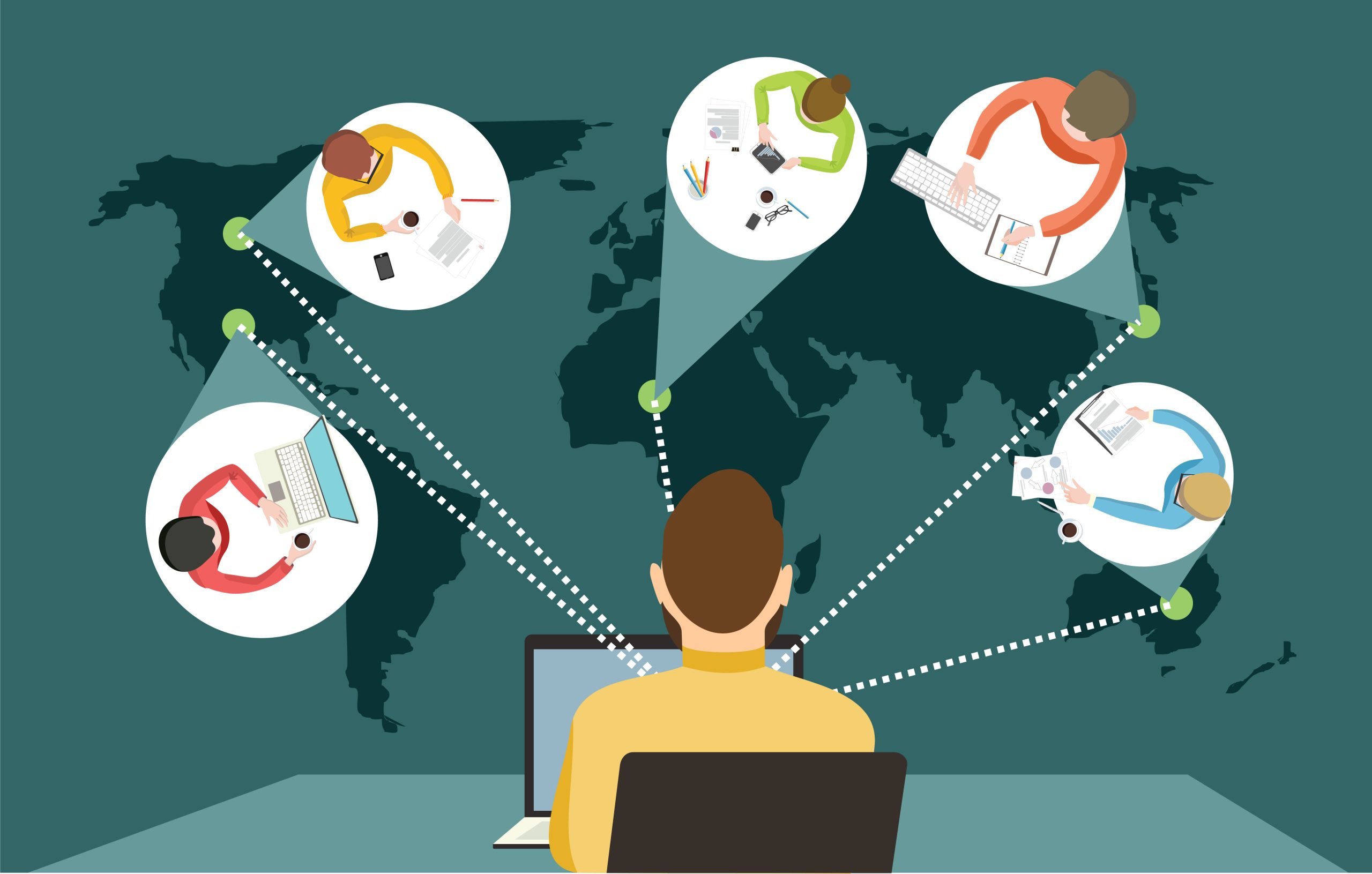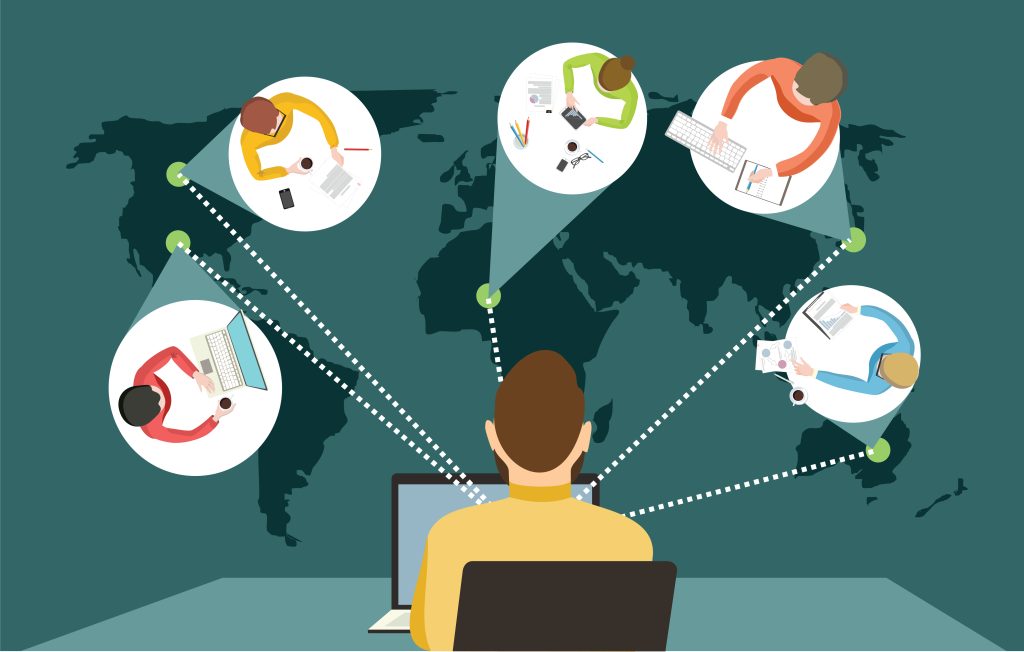
The New Era of Company Travel and Technology
COVID-19 has brought many changes to the industry, and it looks like many of these changes are going to remain to become the new norms.
October 19, 2021 | By Peter Philips

 One of the biggest changes will be travel for work. Many large companies have hundreds of people who travel on a weekly basis to support production and maintenance activities.
One of the biggest changes will be travel for work. Many large companies have hundreds of people who travel on a weekly basis to support production and maintenance activities.
As COVID-19 has put a long pause on travel, companies have learned to adapt and use online meeting platforms to attend meetings, project groups and trainings.
This experience has helped companies realize a great deal of off-site activities can be replaced by online technology, and expect travel to be reduced by up to 50 per cent post-pandemic. From this experience, new travel policies have been implemented by many companies, stating any travel needs to be critical to company operations.
The new policies have had some mixed reviews; both positive and negative.
On the plus side, operational support people who in the past travelled two-to-three weeks per month are relieved to have their travel cut in half. From experience, life on the road is stressful and tiring. People work all day at a plant or attending off-site meetings, and then spend most of the evening in their hotel catching up on emails and other correspondences.
Another plus for the company is travels expenses. As an example, many of our meetings with plant maintenance managers and other meetings with our counterparts in other divisions occurred every three months off-site. New policies have us meeting online, and face-to-face just twice a year.
On the minus side, some maintenance-support activities are difficult to perform when you are hundreds of miles away sitting in front of a computer screen. Project teams have been meeting online, developing project details without being able to walk out on the plant floor as a team and see the equipment or process involved in the project. They found it more difficult to have the confidence in their decisions when they have not seen the project and people involved in person.
Here are a couple real life examples that will demonstrate this new way of conducting projects: For the past several months, I have been working with other team members on two large projects that will affect all our production facilities.
The first project is called Asset Care. The team has worked together designing the pilot project without meeting face-to-face or seeing the equipment, as most of us are working from home due to COVID-19 precautions at the plants. With the restrains, we realize the project is not perfect and it will need many adjustments when we finally meet at the plant, where we will conduct the pilot project before it is rolled out to other production facilities. To say the least, we are very anxious to see how the project works out with the new model of working remotely.
Another project we are working through is Craft Development. We know maintenance training must be a continuous process, and the past 18 months of COVID-19 restrictions have put a strain on training activities. Travel for training will also have a 50 per cent reduction, so our team’s mandate is to is develop alternatives methods to deliver training to
our trades people.
The team realizes the training needs to be focused on the training gaps that are identified through individual knowledge and skills assessments of our trades people. Once the gaps are identified, we need to look at available technology that will allow trades people to participate from their place of work. It is not difficult to find online maintenance knowledge courses, however, delivering the hands-on skills training online is difficult, and nearly impossible to find.
To cope with COVID-19 restrictions, we divided the training design into two distinct delivery methods:
1. Knowledge training will be delivered online though third party training partners. Individual training gaps will be filled with specific mechanical and electrical courses available online 24/7. Trade’s people will be able to access their training courses when it fits their work schedule.
2. Skills (hands-on) training will take place in-house using experienced maintenance technicians. The project team has written specific objectives and outcomes that must be achieved by the trainee to pass the skill. Our technicians who will deliver the training will be given facilitation skills training and instructions on how to deliver on-the-job training.
Again, our Craft Development project has been developed completely using online meetings. We know it will have deficiencies and we will need to adjust when we launch our pilot project at one of our plants once travel restrictions have been lifted. In the beginning of the pandemic, most companies thought travel restrictions would be temporary. However, as the months have passed, we have adapted to new ways of getting our jobs done.
As I write this article, the Delta variant is expected to be the dominant strain and will continue to affect the way companies do business. Travel restrictions may continue to be a big factor, and online technology that allows people and processes to interact will become the new norm that none of us could have possibly imagined two years ago. MRO
________________
Peter Phillips is the owner of Trailwalk Holdings Ltd., a Nova Scotia-based maintenance consulting and training company. Peter has over 40 years of industrial maintenance experience. He travels throughout North America working with maintenance departments and speaking at conferences. Reach him at 902-798-3601 or peter@trailwalk.ca.
